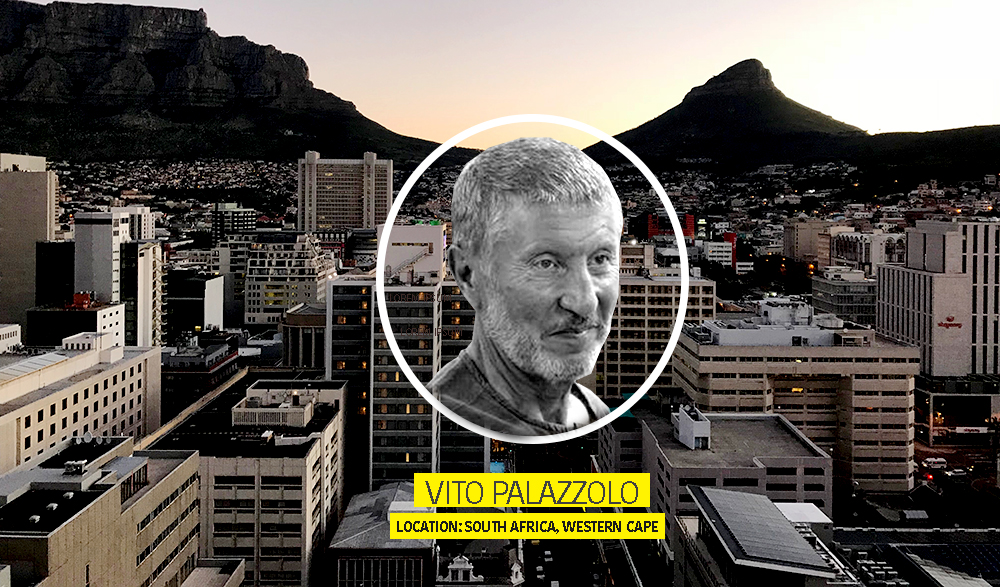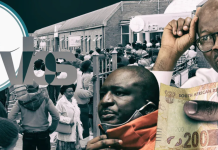By Caryn Dolley | 25 June 2019
Vito Palazzolo, previously based in the Western Cape, was once viewed as one of the most powerful figures in the Italian mafia, Cosa Nostra, and was suspected of having ties to top local politicians and police. Now, after decades of chasing, Italian authorities are moving in on money linked to him in South Africa.
An intricate legal saga spanning more than three decades has culminated in Italian authorities starting to seize assets tied to Vito Palazzolo – and their relentless quest to see him pay up is zooming in on South Africa, which for years offered him sanctuary and shielded him from arrest.
Palazzolo, who also goes by the name Robert von Palace Kolbatschenko, is sometimes referred to as “the Gupta of the 90s” by some in local police and legal circles, given his alleged influence on politicians back then.
In the mid-90s he was suspected of having National Party and ANC figures in his pocket.
Based in Western Cape at the time, he was also suspected of having several controversial local characters working as foot soldiers for Cosa Nostra, including rumoured intelligence operative and nightclub security kingpin Cyril Beeka.
These individuals were in turn suspected of crimes including firearm smuggling, drug dealing and illicit diamond buying.
Palazzolo was never convicted of any crime in South Africa and still has several deep connections in this country.
But he has been jailed in Switzerland, Thailand and Italy, where he remains after being released on probation earlier this year.
Lingering local ties
AmaBhungane has established that he is still an active director of a company based in George in the Western Cape and his address is listed as La Terra De Luc – an estate in the wealthy winelands town of Franschhoek, which he once owned.
It is understood the estate, still linked to the Palazzolo family, is on the Italian authorities’ radar.
A number of other South African companies linked to Palazzolo (some of which he was previously a director of) still appear to be active, often in the name of his son Christian or his Israeli wife Tirtza von Palace Kolbatschenko.
The Italian authorities recently announced that, thanks to Thai counterparts giving the go-ahead, they froze a deposit of tens of thousands of euros in an account under Palazzolo’s wife Tirtza’s name.
In the second week of June investigators were still determining exactly how much was in the account.
Tirtza declined to answer specific questions put to her by amaBhungane, saying she had avoided commenting on “disproportionate media hype for the past 30 years.”
Italians working with SA
The investigation into Tirtza’s Thai account forms part of a much broader Italian probe into identifying and possibly seizing foreign assets linked to Palazzolo.
Mariagrazia Duminuco, the head of visa consular matters for the Italian consulate in Cape Town, confirmed South Africa had been identified in this regard.
“The Consulate is currently working with the competent judicial authorities in Italy and South Africa in the framework of an international judicial cooperation procedure,” she said.
“We are not allowed to share any other information until the procedure is closed.”
International relations department spokesperson Clayson Monyela said the National Prosecuting Authority (NPA) or Department of Justice dealt with such matters.
The Department of Justice’s extradition team could not pick up anything about it on its system so amaBhungane was referred to the Asset Forfeiture Unit (AFU) which falls under the NPA.
Bulelwa Makeke, the NPA’s head of communications, said she could not provide details.
“It would not be appropriate for the AFU to respond in any amount of detail to the enquiry at the moment,” she said.
A source with ties to policing and knowledge of local activities related to Palazzolo said that about a year ago there had been attempts to try and find out what he owned in South Africa. The source understood this exercise was for Italian authorities.
AmaBhungane has seen documents suggesting Italian authorities, looking into bank accounts and money transfers he operated, had in 2014 already identified 11 South African companies linked to Palazzolo.
They had wanted information linked to the companies, including about partners and real estate.
Palazzolo’s relatives are, and have been, involved in an array of companies, several based in South Africa.
AmaBhungane established that Tirtza Von Palace Kolbatschenko is a director of a financial services company, One Vision Investments 11, with a business address in Constantia.
Palazzolo was previously a director of this company, registered in June 2003, but he resigned months later that same year.
One of his sons, Christian von Palace Kolbatschenko, is an active director of it.
Christian also manages La Vie de Luc, a water and bottling company in Franschhoek.
In response to a request for comment about Italian authorities focusing on assets or wealth linked to his father, Christian said the sentiment Tirtza had expressed to amaBhungane “is shared by all of us.”
Palazzolo, born in Sicily in 1947, worked as a private banker in Switzerland.
He first came to the attention of law enforcement in Italy and the United States when he was linked to the famous “Pizza Connection” heroin trafficking ring.
In 1985 Palazzolo was jailed in Switzerland in relation to his control of some accounts receiving money from the heroin sales.
But in December 1986 he absconded from prison and turned up in South Africa, where he had already deposited cash and bought connections.
Palazzolo acquired Ciskei citizenship, which he parleyed into South African citizenship in 1994.
He used the SA courts successfully to fight off repeated attempts by the Italians to extradite him, but was finally arrested in Thailand in 2012.
The following year he was extradited to Italy where he was jailed for a nine-year term stemming from a conviction there handed down years earlier.
In March this year Italian media reported that Palazzolo had been released from formal jail into the care of social services.
But if the 71-year-old thought his decades-long problems with the law were finally winding down, he was mistaken.
Fresh money matters
On June 10 this year the Guardia di Finanza, a police unit falling under Italy’s Ministry of Economy and Finance, issued a press statement announcing it had seized the deposit in the account in his wife’s name.
This formed part of the international investigations being conducted by Italian authorities.
These investigations, according to the Guardia di Finanza, were part of anti-mafia operations aimed at targeting illicitly accumulated and reinvested assets wherever these had been identified.
The statement also focused on Palazzolo’s past saying that while in South Africa, Palazzolo had sharpened his entrepreneurial skills and invested in real estate and the commercial sector.
A video clip with the Guardia di Finanza’s logo on it, posted by Italian media outlets, showed footage of the perimeter of La Terra de Luc in Franschoek and a screengrab with some details relating to One Vision Investments 11, the company his wife is a director of.
The Guardia di Finanza statement said Palazzolo had previously not limited himself to South Africa, but extended his interests to Namibia and Angola.
In 2015 The Namibian reported that Italian authorities were after Palazzolo’s assets there.
It said that it had identified at least eight companies or entities linked to Palazzolo in Namibia.
The report said investigations showed Italian authorities had a list of entities believed to be linked to Palazzolo, this included the company Avila, registered in 2005 and deregistered five years later.
However, The Namibian reported the company’s bank account was still active and was allegedly used by Tirtza Von Place Kolbatschenko who “allegedly transferred over N$1 million into the Avila account from her account in Bangkok, Thailand [in 2014].”
‘Senseless persecution’
She declined to comment on this matter to amaBhungane.
Tirtza instead focused on Palazollo’s history in South Africa.
“My husband has NO Criminal Record in South Africa, which the South African courts have placed on record.
“Justly or wrongly, Robert was trialled and convicted in Italy (twice and both times based on the same Swiss facts!),” she said, referring to previous legal issues Palazzolo was the centre of.
“My family and I feel that it is time to stop this senseless persecution. My husband is about to complete his probation time and is entitled to a new peaceful life.”
Tirtza said findings and judgments relating to Palazzolo were available online for those interested in these matters.
“The rest is unfounded speculation.”
The amaBhungane Centre for Investigative Journalism, an independent non-profit, producedthis story. Like it? Be an amaB Supporter to help us do more. Sign up for our newsletter and WhatsApp alerts to get more.






